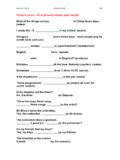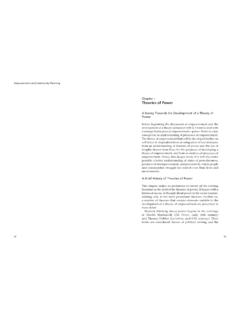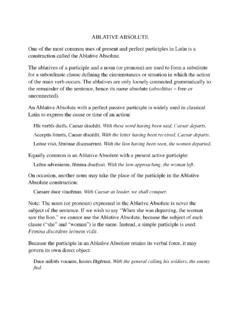Passive Present
Found 5 free book(s)PARTICIPLES - The Latin Library
thelatinlibrary.comA participle is a form of a verb used as an adjective. The participle may be active or passive, but will always agree in number, case, and gender with the noun that it modifies. The active participle has a present tense meaning: Active: The man saw the running horse / Vir equum currentem vidit. The passive participle has a past tense meaning:
TEACHER’S NOTES Name Three - Teach-This.com
www.teach-this.comIn this passive voice game, students practice making 'Name three' questions in the past and present passive. Procedure Divide the class into groups of three. Give each group a set of cards. Tell the students to shuffle the cards and place them face down in a pile on the table. Students take it in turns to pick up a card and make a 'Name
Passive voice – fill in present simple, past simple Most ...
www.viennatouristguide.atpassive voice present tense test Passive voice – fill in present simple, past simple Most of the things we buy _____in China these days. (make) I study Art – it _____in my school. (teach) Cheques _____much these days - most people pay by credit card. (not use) ...
Chapter 1 Theories of Power - mpow.org
www.mpow.orgphilosophy. The present chapter, however, focuses on contemporary theorists for whom power is the central concept in their thinking. the unpredictable character of the power game, and its profound dependence on context (Clegg, 1989).2 After the Second World War, the social sciences began taking an understandable interest in power.
ABLATIVE ABSOLUTE - The Latin Library
www.thelatinlibrary.comAn Ablative Absolute with a perfect passive participle is widely used in classical Latin to express the cause or time of an action: Hīs verbīs dictīs, Caesar discēdit. With these word having been said, Caesar departs. Acceptīs litterīs, Caesar discēdit. With the letter having been received, Caesar departs. Leōne vīsō, fēminae ...




